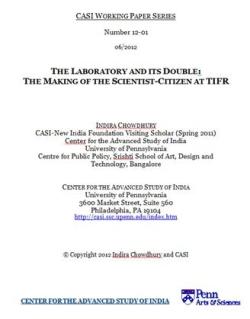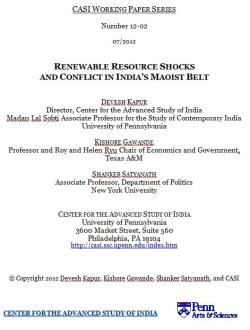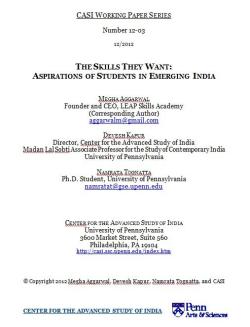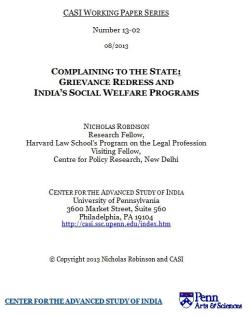Devesh Kapur
Devesh Kapur is the Starr Foundation South Asia Studies Professor and Asia Programs Director at the Paul H. Nitze School of Advanced International Studies (SAIS) at Johns Hopkins University, Washington, D.C.
Nuclear India: The Slip Between the Cup of Strategy and the Lip of Operability

Three months ago, India’s former foreign secretary and current coordinator of the National Security Council Advisory Board, Shyam Saran took the unusual step of publicly taking on critics of India’s operational nuclear capabilities. These critics have long cited the inability of successive governments to address the many technical and organizational lacunae in India’s operational capabilities as a reason why they believe that India’s nuclear foray is a prestige-driven enterprise. Contra such claims, Saran maintained that Delhi’s operational nuclear capabilities are robust.
Searching for Security in Cyberspace

Despite its best attempts and some very creative thinking, the Indian government’s efforts to chart an independent course in cyberspace have met with consistent failures and frustrations. Its Cybersecurity Policy, published last month, is a case in point. Released amidst the growing controversy over revelations regarding the American electronic eavesdropping program, this policy document is the culmination of deliberations that the Indian security establishment has been carrying out with various stakeholders for the past three years.
The Perceptions of Others: World Opinion and Indian Foreign Policy

Seeing oneself through others’ eyes is an important act of introspection. There is much a nation can learn about the content and impact of its external policies by studying how it is perceived by the world. Public opinion can be a reliable indicator of trends in bilateral relations, and analysts frequently measure a country’s attractiveness (soft power) by the opinions of other societies. The perceptions of others, therefore, can act as a heuristic device for a nation's foreign policy if not a metric of its success.
The Law of Indian Democracy

Deciding how to put the abstract democratic ideal into practice isn’t easy. Some decisions are large institutional ones, such as whether a country should opt for parliamentarianism; others are more microscopic – how electoral districts should be mapped, how electoral speech should be regulated, and so forth. The specific institutionalization of the democratic ideal can radically impact its functioning and even threaten the ideal itself. While India has managed non-partisan election administration reasonably well, other features of the system are poorly regulated and understood.




